Farming: The UK's deadliest industry
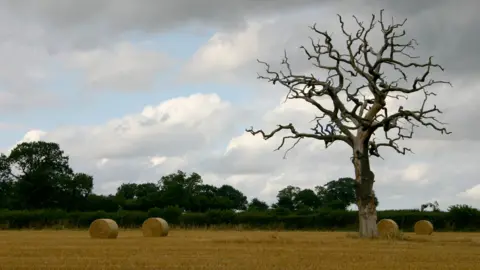 BBC
BBCWorking on a farm used to be about as dangerous as being employed on a building site. But while the number of construction deaths has dropped over the past 30 years, fatalities in agriculture have remained high. Why? And what impact is this having on farmers and their families?
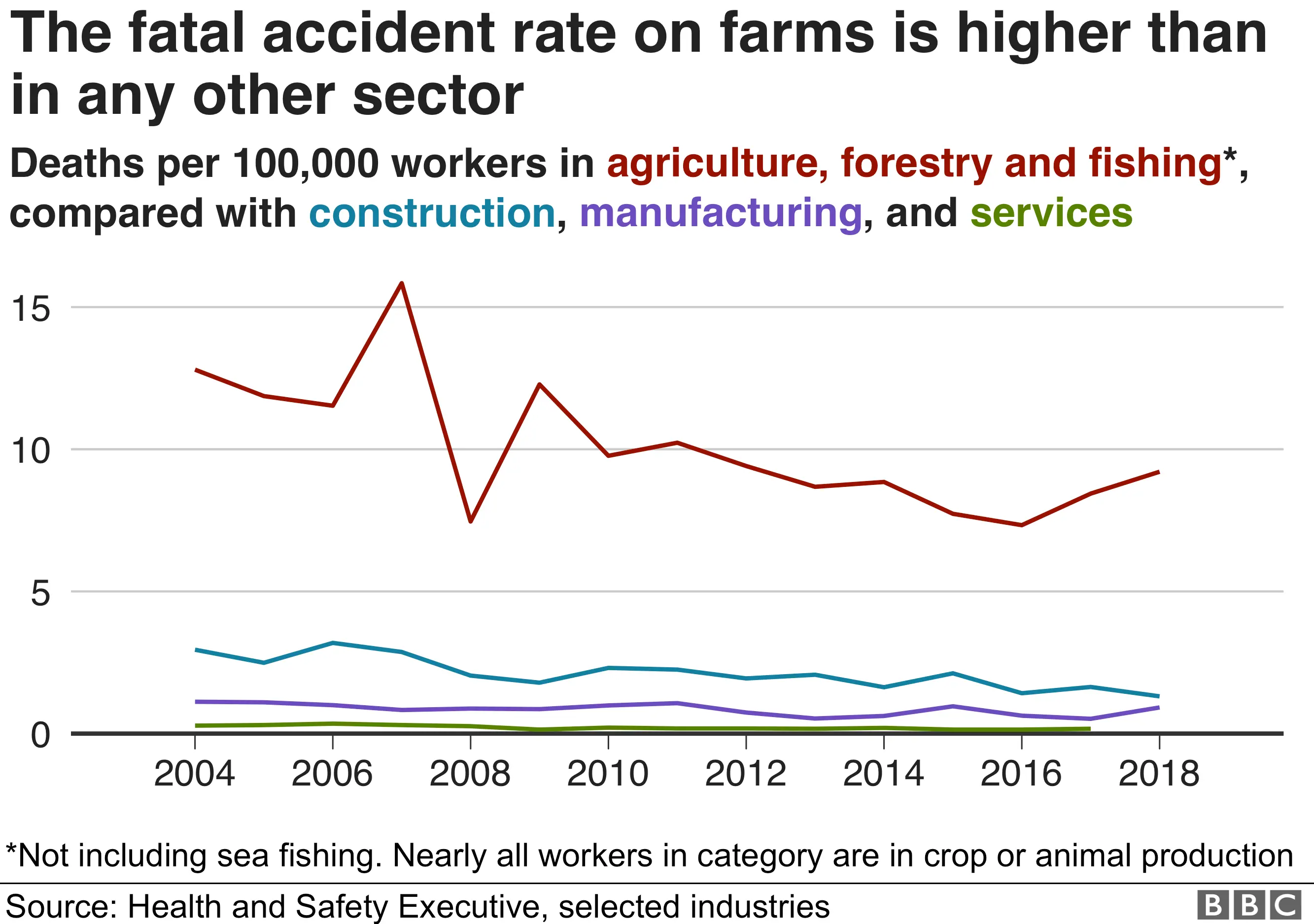
The UK's farms remain a surprisingly deadly environment in which to work. Although construction accounts for a higher overall number of deaths, there are many more people working in construction, and so its per capita fatal accident rate is lower than agriculture's.
According to BBC News analysis of Health and Safety Executive (HSE) data, workers in the agriculture, forestry and fishing sector are more than 20 times more likely to be killed at work than the average for all other sectors combined.
About 360,000 people work in agriculture, or 1% of the total workforce, yet the sector is responsible for 20% of all fatal accidents at work.
In raw numbers, this means about 30 farm workers are killed in accidents every year.
In 2017, Peter Fisher, a highly experienced haulier of agricultural goods, was among the casualties.
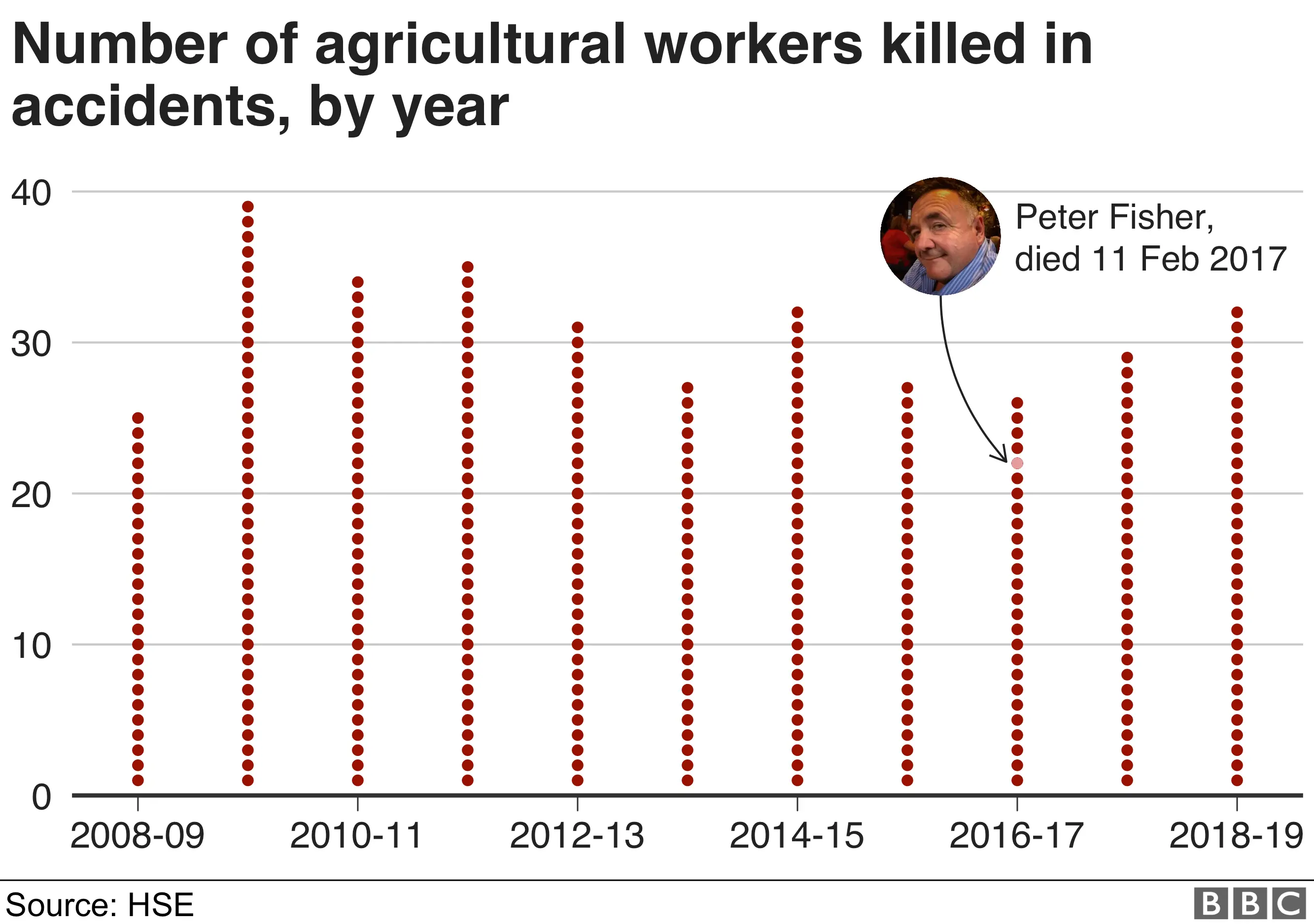
Peter Fisher earned a living transporting enormous bales of straw. In the months leading up to his death, business was booming - a nearby power station required large quantities of straw to burn as biofuel and Peter was much in demand.
He would either take the bales directly from the fields to the power station or to holding areas where they could be stored safely until needed.
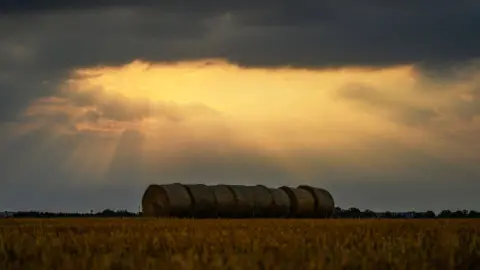 AFP/Getty
AFP/GettyWhen the accident happened, Jack Fisher, Peter's son, was feeding cattle on a separate farm a few miles down the road.
A popular and fun-loving member of the local community, his father was also an absolute stickler for doing things properly, Jack says, and always made sure his three sons went about their work carefully.
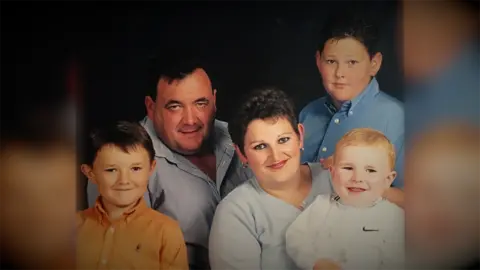
But because Peter was alone when he died - solo working is common in agriculture - the family will never be sure exactly what happened to him.
That weekend, he had decided to put in an early shift so he would be finished by lunchtime and could enjoy a meal out with family visiting from Nottingham. He was up and working at 04:00, loading straw on to the lorry in bales 4ft (120cm) wide, 4ft high and 8ft long.
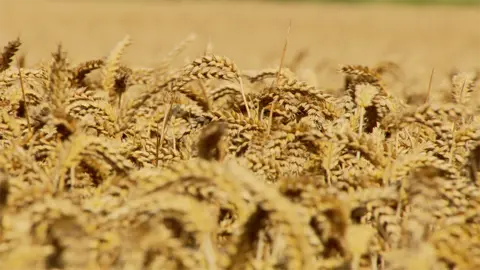
Sometime between 05:15 and 09:00, Peter was taking the support strap off a stack of bales on his lorry - something he had done many hundreds of times before. He had been shifting straw bales for nearly a decade and had done many similar jobs in the decades before that.
A bale of this size weighs 650-800kg (125 stone) and they were piled four high.
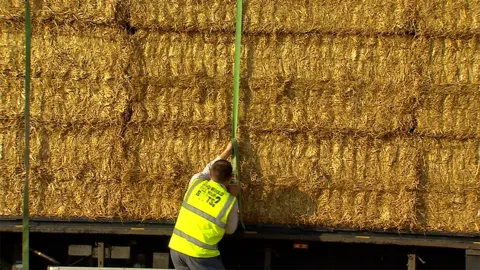
The stack of bales collapsed.
"When they took the bales off him, he had a rolled up ratchet strap in his hand," Jack says. "It was an instant thing - he wouldn't have felt anything."
The consequences were devastating, both personally and financially but Jack's older brother decided to take over the family business in the months of turmoil that followed Peter's death and in the past few weeks has persuaded Jack to join him, taking on a contract for a second lorry.
"There are lots of people who have said to me, 'How can you do a job that killed your dad?' But I think the way to look at it is if you lived your life of 'What if?', then the world wouldn't go round.
"If I didn't feel comfortable doing the job, then I wouldn't be doing it."
Jack talks about how safety-conscious he is at work. He has become a campaigner for farm safety and says younger farmers are improving procedures to make accidents like the one that killed his father less likely.
But the older generation of farmers are not keeping pace. "They feel that because they've done it so long - and they're stuck in their ways," Jack says.
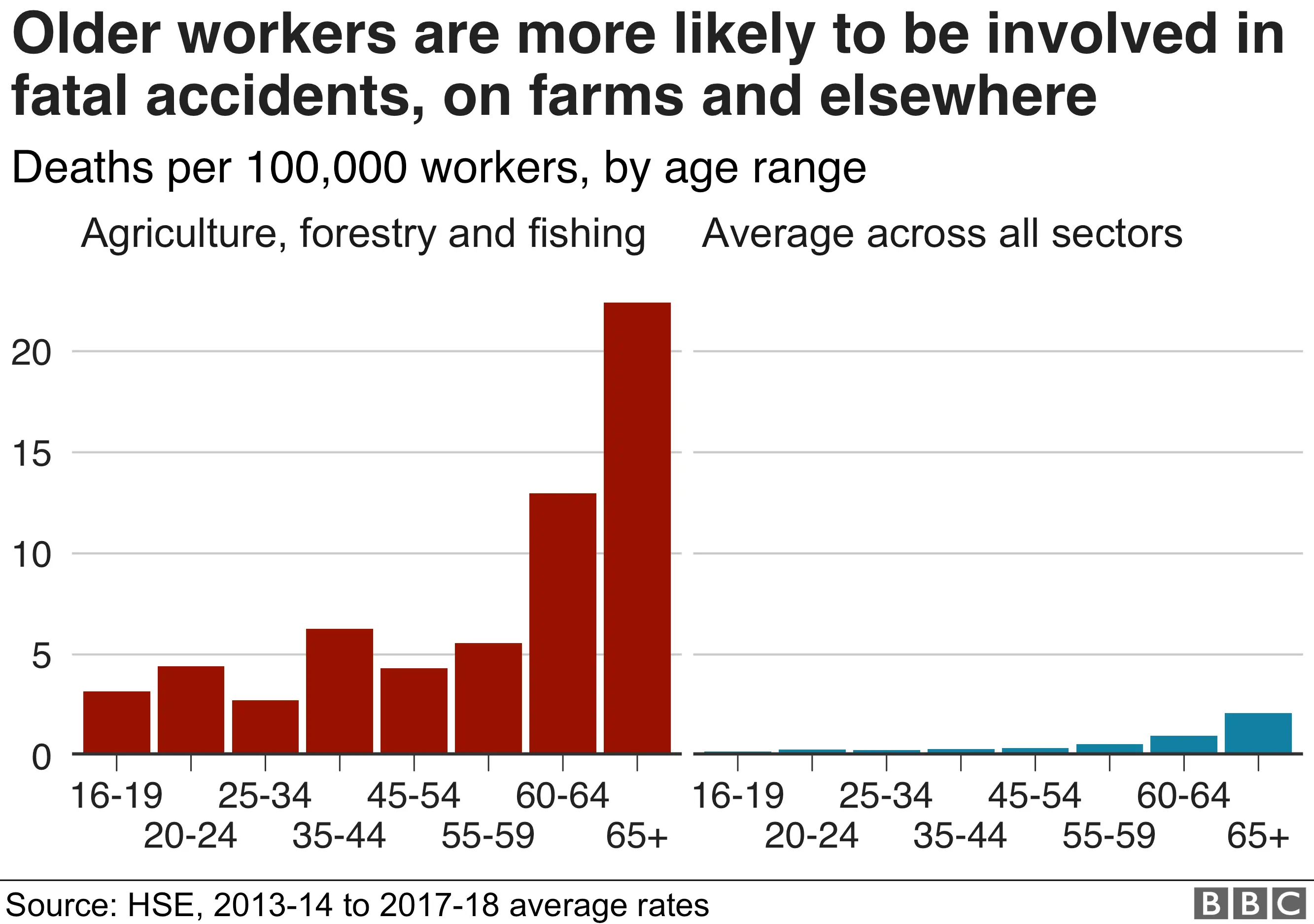
"My dad would probably have been one of those people who thought, 'It won't happen to me.' And that's when an accident catches you. When you think it's not going to happen to you, that's when it does happen."
The farm safety campaign that Jack supports is called Yellow Wellies, which is run by the Farm Safety Foundation. He says it is managing to reach younger farmers, convincing them to take safety considerations more seriously.
"The older generation - they're the people we've got to crack," he says.
An HSE representative said agriculture generally was "an industry in which risks are poorly managed".
"It is a challenge to get parts of this industry, which is characterised by a lack of large companies, to accept that they are not managing risks well," the spokesperson said.
Construction companies, on the other hand, had reduced fatalities in their industry by adopting "demanding targets and action plans, particularly after a summit in 2001".
"The supply chain in construction is often based on large companies employing various tiers of sub-contract specialists who can be directly influenced," the HSE representative said.
Yellow Wellies uses the tagline: "Who would fill your boots?" In Peter's case, Jack says his father would have been "really, really proud" to see his sons taking on the family business and expanding it.

He just wishes he was around to be a part of their success and advises other farmers to become more danger-aware.
"Take your time - slow down, and make sure stuff's done properly, because once you're gone you're gone and that's it, there's no second chance."
For more Focus on Farming content, visit our web page at www.bbc.co.uk/focusonfarming

As part of our Focus on Farming week, we are looking for your pictures reflecting rural life. Send them to [email protected]
- WhatsApp: +44 7756 165803
- Or Upload your pictures/video here
- Tweet: @BBC_HaveYourSay
- Send an SMS or MMS to 61124
- Please read our terms & conditions and privacy policy
